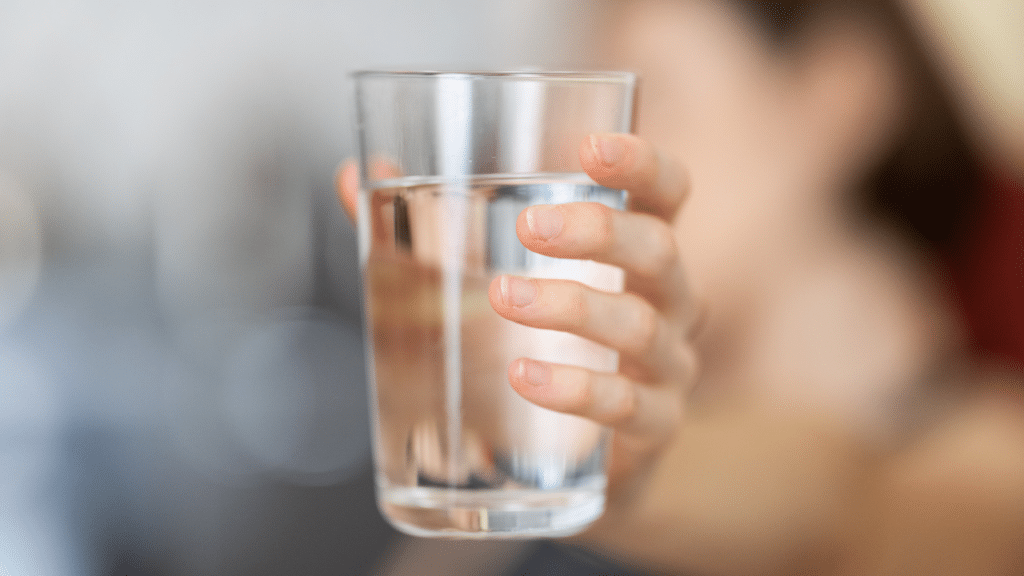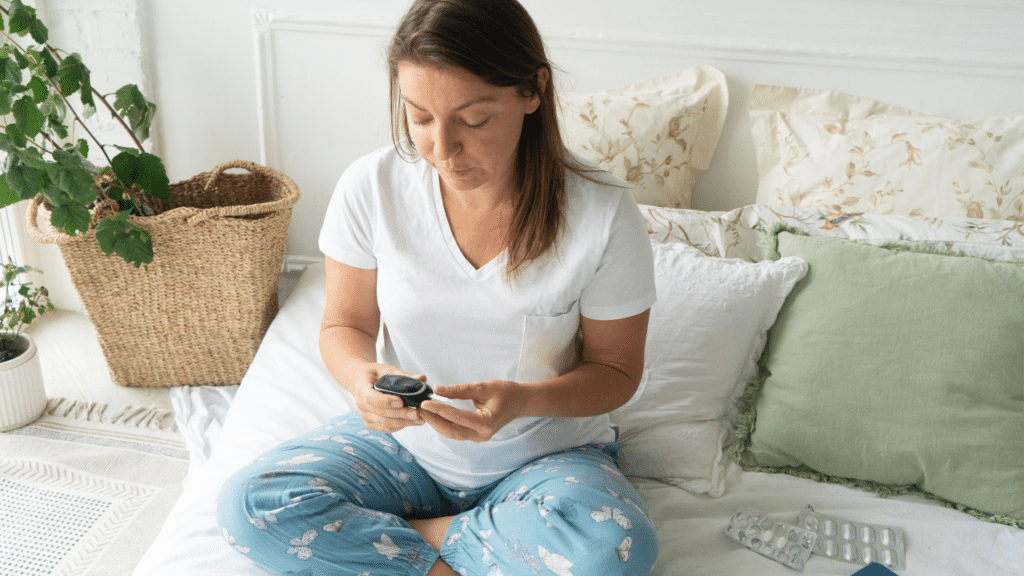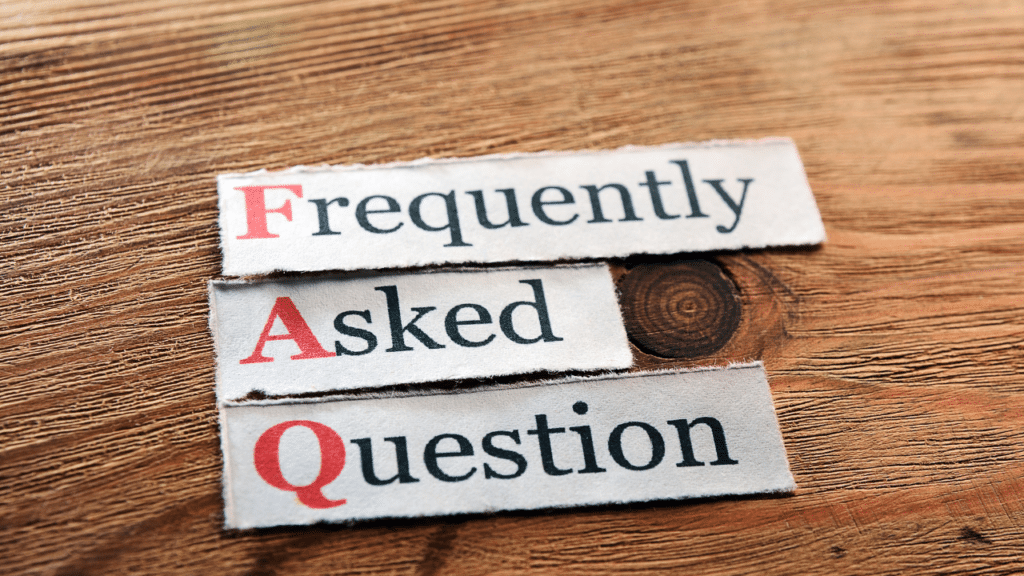Ever thought about how something as simple as guzzling down water could mess with your blood sugar? Turns out, it’s not just folk wisdom. Studies got the receipts to prove that keeping hydrated might just be a low-key hero in managing those sugar levels. Picture this: folks with diabetes cutting back on water and watching their blood sugar go on a rollercoaster ride. But, give them a glass of water before meals, and bam, those fasting glucose numbers start behaving. It’s like your body’s playing a smarter game with water by its side, making it less likely you’ll tango with diabetes down the line. So, while it ain’t the magic fix, making water your BFF could edge you closer to winning that blood sugar battle.
Another nugget from the science vault is this one study, acting all detective-like on people with type 2 diabetes. Result? Regular water breaks meant lower sugar spikes—a big win. But don’t go tossing your meds and lifestyle changes out the window yet. Think of drinking more water as part of the squad, not the sole player, in this blood sugar game.
Last up, let’s talk big picture. Drinking more water isn’t just about quenching thirst; it’s about setting up a line of defense against those sneaky sugar spikes. Plus, staying hydrated could mean you’re giving diabetes the cold shoulder before it even shows up. Bottom line: Water’s got your back in more ways than one when it comes to blood sugar.

Understanding the Impact of Hydration on Blood Sugar Levels
Did you know that chugging down water plays a major league role in keeping those sugar levels in check? Here’s the dish: the more H2O cruising through your system, the better your body gets at kicking excess glucose to the curb. If you’re in the clear health-wise, your body’s on autopilot, making sure the fluid levels and glucose in your bloodstream are chilling just right. But throw diabetes or prediabetes into the mix, and it’s like your body’s usual chill mode hits a snag, struggling to keep sugar in your blood from crashing the party too hard. So, making water your go-to can help dodge dehydration and smooth out those blood sugar spikes, which is a pretty sweet deal.
The Role of Water in Managing Blood Sugar
Let’s break it down: water’s not just for quenching thirst; it’s like the unsung hero in the saga of blood sugar management. When you’re keeping up with your water intake, your body’s better equipped to maintain a stable sugar level in your blood, preventing those unwanted spikes and crashes. It’s all about balance. Ensuring you drink enough water helps your body stay in its happy place, where it’s not throwing glucose or fluids out of whack. For folks navigating the rocky waters of diabetes or prediabetes, sticking to a hydration plan can be a game-changer in keeping sugar levels steady.

How Hydration Affects Fasting Blood Sugar
Ever wondered what goes down with your sugar levels when you’re knocking back those glasses of water? Well, drinking enough water can play ball with your fasting blood sugar, helping to keep those numbers from going rogue. The science says it plain: staying hydrated helps your blood dilute the excess glucose cruising in your bloodstream, making it easier for your body to manage sugar levels like a pro.
It’s kinda like when you’re prepping for a blood test; doctors tell you to lay off food but give a thumbs up to water. That’s because hydrating doesn’t mess with the glucose in your bloodstream; if anything, it gives your body a helping hand to keep those fasting sugar levels from hitting the ceiling, setting you up for a smoother health journey.
Research Highlights on Water’s Effect on Postprandial (After Eating) Blood Sugar Levels
Post-meal sugar spikes? Yeah, water’s got a say in that, too. While your blood sugar taking a joyride after munching is normal, you don’t want it sky-high. Studies toss in a curveball: Drinking water might just level out those sugar spikes post-chow down. This isn’t just grabbing straws—researchers rolled up their sleeves and found that sipping on water can cut down the drama of those blood sugar highs and lows. Although it’s a mixed bag of results, the idea is water could be the unsung hero, keeping your sugar levels from going on a post-meal frenzy.
Summary of Findings on Hydration and Glucose Regulation
Alright, let’s put it in a nutshell. Keeping hydrated is like having a secret weapon against the sugar beast. Whether you’re dealing with fasting blood sugar levels or the aftermath of a meal, tossing back enough H2O can help keep things on an even keel. There’s some solid chatter in the science community backing up the notion that a well-hydrated body can fend off sugar spikes more effectively, making it a key player in glucose regulation.
But here’s the kicker: While drinking your daily quota of water is a smart move, it’s not a stand-alone solution. It’s part of a bigger strategy that includes diet, exercise, and other lifestyle tweaks. Yet, when you’re talking about lowering blood sugar, every little bit helps, and staying hydrated might just be the easiest trick in the book to help you keep those sugar levels in the friend zone.

Comprehensive Approaches to Lowering Blood Sugar Naturally
Want to keep your blood sugar from hitting the high notes? It’s not just about dodging the sugar bowl. A mix of smart eating, staying active, and yes, keeping tabs on your water intake, can play a big-league role. Hitting the gym or moving can make your body more efficient at using insulin and managing blood sugar. It’s like putting together a team where each player brings their A-game to keep your sugar levels in check. You don’t need fancy moves, just consistency and a bit of know-how to stay on top of your game.
Dietary Modifications to Support Blood Sugar Control
Let’s get real about food and drinks. It’s not just what you eat but how your body vibes with it. Everybody’s different, and sugar doesn’t play favorites. Some grub can send your blood sugar on a wild ride, while others keep it cruising nice and steady. It’s about finding what works for you, dialing back on the sweet stuff, and loading up on what keeps your meter happy. Listening to your body and adjusting your plate accordingly can turn the tide in this sugar dance.
Eat More Fiber to Manage Blood Sugar Levels
Digging into fiber is like giving your body a playbook for managing sugar levels. High-fiber foods slow down sugar’s hustle into your bloodstream, letting your body handle things without panic. Think of it like a slow-release formula, keeping your sugar levels from spiking after meals. From veggies and fruits to beans and whole grains, loading up on fiber means you’re not just filling your belly; you’re giving your body a fighting chance to smooth out those sugar spikes, making every meal a strategic move in your health game plan.
And here’s the thing: ramping up on fiber doesn’t have to be a chore. Start with swapping out white bread for whole grain, snack on nuts instead of chips, and maybe throw in some lentils with dinner. Small tweaks can lead to big wins in the blood sugar department, so get creative and let fiber do some of the heavy lifting in your diet.
The Importance of Eating Foods Rich in Chromium and Magnesium
So, you’re eyeing that blood sugar level and wondering how to keep it in check, right? Well, let’s talk about some undercover heroes in this battle: chromium and magnesium. These aren’t just elements on the periodic table you struggled to remember in high school; they’re your allies in controlling blood sugar. Foods packed with chromium, like broccoli, and magnesium-rich choices, such as spinach, aren’t just healthy; they’re strategic. By fueling up on these, you’re not just eating; you’re outsmarting those blood sugar spikes with every bite.
Think of it this way: if your body was a car, chromium and magnesium would be like the best quality fuel you can get. They help your body’s engine run smoothly, especially when it comes to managing blood sugar. It’s not just about avoiding the sweets; it’s about making smarter choices on the daily. Including these nutrients in your diet is like having a secret weapon that keeps the sugar levels in check without making a big fuss about it.

Lifestyle Changes to Aid in Blood Sugar Management
Managing blood sugar isn’t just about what you eat; it’s also about how you live. Mixing in some good habits, like being more active and cutting down on those late-night snack raids, can work wonders. It’s like adding layers to your defense against blood sugar spikes. Small changes make a big difference.
Exercise and Movement Throughout the Day
Think of regular exercise not as a chore but as your loyal sidekick in the fight against high blood sugar. It’s not about running marathons or lifting weights like you’re gunning for the Olympics. Small stuff counts, like taking the stairs instead of the elevator or going for a stroll around the block. These bits of movement add up, helping your body use insulin better and keeping your blood sugar levels from going on a roller coaster ride.
Now, while it might be tempting to think that a little jog now and then is all you need, consistency is key. Making movement a part of your everyday life can do wonders for your health. It’s like brushing your teeth; do it regularly, and you’ll see the benefits. Plus, you don’t need to be a gym buff to make a difference. Find something you enjoy, and stick with it. Your blood sugar will thank you.
Implementing Portion Management
Lemme tell ya, managing portions is like managing your budget—essential but often overlooked. Eating the right amount of food isn’t just good for your waistline; it’s crucial for keeping your blood sugar levels in the sweet spot. It’s not about eating bird-sized portions but about understanding moderation. You can still enjoy your favorite foods, just not the whole cake in one sitting. By keeping an eye on portion sizes, you’re taking a giant step towards balancing your blood sugar without feeling deprived.
And here’s the kicker: when you manage your portions, you might find yourself shedding some pounds without even trying. Achieving moderate weight isn’t just a win for your wardrobe choices; it’s a win for your blood sugar levels too. So next time you’re dishing out dinner, think about the size of your serving. It’s a simple trick with big rewards.
The Benefits of Quality Sleep on Blood Sugar Levels
Who would’ve thought that catching some Z’s could be a secret weapon against high blood sugar? Turns out, skimping on sleep is like giving your blood sugar permission to go haywire. When you’re logging enough shut-eye, your body’s better at managing insulin. That’s right, snoozing could be just as important as your diet when it comes to keeping blood sugar levels in check. Plus, when you’re well-rested, you’re less likely to raid the pantry for snacks, which is a bonus.
Now, if you find water a bit bland, remember, drinking enough water before bed can help improve your sleep quality and control blood sugar. It’s like hitting two birds with one stone. So, make sure you’re getting those precious hours of sleep and staying hydrated. It’s an easy fix that can have a big impact on your health.

The Significance of Water Intake for Individuals With Diabetes
Staying hydrated is not just about avoiding dry mouth; it’s a key player in the game of blood sugar management. For folks with diabetes, water is like the body’s personal assistant, helping to dilute high blood sugar levels and reduce the risk of dehydration. It’s a simple, yet powerful tool in the diabetes care kit.
How Much Water Should You Drink to Help Control Blood Sugar?
When it comes to managing diabetes, water to drink isn’t something to take lightly. Glugging down about 30 minutes before meals can not only help with staying hydrated but also aid in portion control. It’s like a natural appetite suppressant that helps you eat less and manage your blood sugar better. Plus, swerving away from beverages with artificial sweeteners and sticking to good ol’ H2O can keep kidney disease, a buddy of diabetes, at bay.
Water Recommendations for People with Type 2 Diabetes
For those navigating the waters of type 2 diabetes, sipping on water throughout the day isn’t just good advice; it’s a cornerstone of blood sugar management. It’s like keeping your engine cool and running smoothly. Aim for about 8 glasses a day, but remember, everyone’s needs can vary, especially if exercise or hot weather is part of your day. Just keep an eye on your body’s hydration cues and adjust accordingly.
And here’s a neat trick: carrying a water bottle can remind you to take hydration seriously. It’s like having a constant companion reminding you to drink up for your health. This simple habit can do wonders for your blood sugar levels and overall well-being. Plus, it’s a zero-calorie strategy to keeping things in check. Cheers to that!
Addressing Dehydration and Blood Sugar Levels
Let’s get one thing straight: dehydration and high blood sugar are like partners in crime, each making the other worse. Drinking enough water has the power to break up this duo by helping to flush out excess sugar through urine. Remember, when your blood sugar’s high, your body is like a sponge trying to soak up extra water to dilute the sugar, and if you’re not replenishing, you’re setting the stage for dehydration. So, keep that H2O flowing!

The Relationship Between Hydration Status and Hyperglycemia
Maintaining a good hydration status is like keeping your body’s thermostat at the right setting—it helps everything run more smoothly, including your blood sugar levels. When you’re dehydrated, your blood sugar concentrations can shoot up, leading to hyperglycemia. This is because your body’s fluids are more like syrup than water, thick with sugar. Staying hydrated helps keep the balance, ensuring your body functions like a well-oiled machine.
Moreover, managing your hydration can act like a natural regulator for your blood sugar. Especially for folks with diabetes, being mindful of your water intake is like having an internal system check. It helps prevent the blood sugar highs and lows that can complicate your condition. Keeping a bottle of water handy and sipping regularly throughout the day isn’t just good for your thirst; it’s a solid step towards better blood sugar control.

Other Effective Strategies to Lower Blood Sugar
Alright, folks, let’s talk shop about getting that blood sugar down without having to rely solely on medications. Ya know, handling it the natural way. First off, regular exercise is like a miracle worker, seriously. It helps your body use up that sugar in your blood as energy instead of just hanging around causing trouble. So, hit the pavement, lift some weights, or just dance around your living room – whatever gets you moving! Then there’s the magic of watching your carbs. It’s not about cutting them out completely, but rather, being smart about it. Carbs turn into sugar, and managing them can really help keep your blood sugar levels on the straight and narrow.
Now, don’t let the bed bugs bite, because getting enough shut-eye ain’t just about feeling rested. Sleep deprivation messes with your glucose levels something fierce. And drink up – but I’m talking water, not soda. Staying hydrated helps those kidneys flush out the excess sugar. Aim for a moderate weight since tipping the scales too much can jack up your insulin resistance. All these tips are like pieces of a puzzle that, when put together, can help control your blood sugar and keep you truckin’ along healthier.
The Role of Stress Management in Blood Sugar Control
Stress – it’s not just a mood killer; it also wreaks havoc on your blood sugar levels. When you’re all wound up, your body thinks it’s time to fuel up for fight or flight, dumping sugar into your bloodstream. Not cool, right? The trick is finding chill-out methods that work for you – be it meditation, yoga, or just deep breathing while pretending you’re somewhere else (a sandy beach works wonders). Managing stress isn’t just good for your mental health; it’s a critical piece of the blood sugar puzzle.
Remember, what affects your blood sugar isn’t just what you eat or how much you move, but also how Zen you can stay in this crazy world. Keeping calm and carrying on isn’t just a slogan for coffee mugs – it’s a viable strategy for keeping those blood sugar levels in check. So next time stress is knocking on your door, tell it you’re too busy relaxing to answer.
Choosing Low Glycemic Foods and Healthy Snacks
When it comes to eating right, it’s not just about dodging the donuts. Opting for low-glycemic foods can be a game changer for your blood sugar. These are the foods that don’t make your sugar levels spike and crash like a roller coaster. Think whole grains, non-starchy veggies, and nuts – kind of like nature’s slow-release energy pills. Alongside that, snacking smart is key. Instead of reaching for chips, grab a handful of almonds or a piece of fruit. Your body (and blood sugar) will thank you.
Not to mention, eating and drinking the right stuff isn’t about starvation or depriving yourself. It’s about balance and making informed choices, like a food detective on a mission to keep blood sugar levels in check. Carbohydrate counting isn’t a math test but rather a tool in your kit to manage diabetes better. So, go ahead, eat that apple – just know what it means for your body.
The Impact of Probiotic-Rich Foods on Blood Sugar Levels
Now, let’s chat about those tiny warriors for your gut health – probiotics. These aren’t just good for making your stomach happy. They’re also part of the team when it comes to handling blood sugar. Fermented foods like yogurt, kefir, and sauerkraut are like a power-up for your blood sugar regulation, aiding in digestion and potentially keeping those sugar levels more stable. It’s like having a bunch of little helpers inside cheering on your metabolism.
And the cool thing is, it links back to drinking water. Staying hydrated aids in maintaining a balance that helps everything in your body, including those probiotics, work better. It’s like making sure your internal environment is just right for these helpful bugs to do their thing efficiently. Think of it as creating a cozy home for them, and in return, they help keep your blood sugar in check. Win-win!

Frequently Asked Questions
Curious minds want to know, can munching between meals be the secret to keeping those blood sugar spikes at bay? Turns out, strategic snacking and spreading out your meals throughout the day can indeed help smooth out those peaks and valleys in your blood sugar. It’s not about grazing non-stop but rather choosing the right snacks at the right times to keep things even-keeled.
And speaking of curious minds, there’s quite the buzz around diet sodas and their effect on blood sugar levels. While they don’t directly raise sugar levels – thanks to being sugar-free – the whole story isn’t just about sugar content. The impact on cravings, appetite, and how your body handles real sugar afterward is where the plot thickens. So, the takeaway? It’s all about moderation and balance, folks.
Can Drinking Water Lower Blood Sugar in Type 2 Diabetes?
Yes, sipping on good ol’ H2O can indeed be part of your strategy to lower blood sugar levels, especially for the type 2 diabetes club. When you drink more water, it helps your kidneys get into gear to flush out the excess sugar through your urine. It’s like giving your body a natural detox, helping to tidy up and keep things running smoothly. Imagine your body being a well-oiled machine, and water is the maintenance crew keeping everything in check.
But let’s not put all our eggs in one basket. While drinking water should be on your daily to-do list, it’s not the be-all and end-all. It works best when combined with other smart moves like a balanced diet and lifestyle, staying active, and keeping tabs on your carb intake. Together, these steps form a powerhouse combo for tackling blood sugar levels head-on.
How Does Drinking Water Affect Fasting Blood Sugar Tests?
When you’re gearing up for a fasting blood sugar test, you might wonder if water’s going to mess with your results. Fear not, because staying hydrated is still on the cards. Drinking water doesn’t throw a wrench in your fasting blood sugar levels; it’s actually a good move. It keeps your hydration levels in check without tipping the scales on your blood sugar readings. So, you can hit that water bottle hard even when you’re in the fasting zone.
Keep in mind, while water is your ally, it’s the whole package – including your diet, exercise, and overall hydration – that plays a role in managing diabetes and keeping those blood sugar tests from giving you a scare. It’s like keeping the peace in a bustling city; everything needs to work together smoothly.
What Are the Signs of Hyperglycemia to Look Out For?
Hyperglycemia, the fancy term for when your blood sugar decides to skydive without a parachute, has some telltale signs. Frequent urination is your body’s SOS signal, trying to get rid of the excess sugar. Then there’s blurred vision, making you wonder if you’ve suddenly needed glasses. Not to mention, an increased thirst that no amount of water seems to quench. These symptoms are your body’s way of waving a red flag, saying, “Hey, something’s up with the blood sugar levels over here.”
But it’s not just about spotting these signs from a mile away; it’s also about knowing what to do about them. A diet rich in the good stuff – fresh fruits, vegetables, and cutting out the sugar spikes – is essential. Together, these steps can help you manage or even prevent hyperglycemia from crashing your party uninvited. So, keep an eye out, and don’t ignore the signals your body is sending you.

Navigating Emergency Situations and Blood Sugar Spikes
Alright, facing a high blood sugar spike can feel like trying to tame a wild bull – it’s all about quick and calm actions. First up, water – this lifeline can help dilute high sugar levels and kick-start your kidneys into flushing out the excess glucose. Think of it as the body’s natural reset button. But hey, it’s not just about guzzling plain old H2O. You’ve got a buffet of options like unsweetened tea and coffee that don’t send your blood sugar on a roller coaster ride.
Then there’s the part where you ditch those sugar-loaded villains. We’re talking sodas and those sneaky sweetened fruit juices that come with more sugar than a candy store. By choosing your drinks wisely, you’re basically playing chess with your blood sugar levels – and winning. Remember, the goal is to keep calm and drink smart.

Immediate Steps to Take in Case of High Blood Sugar
Caught in a high blood sugar bind? Before you hit the panic button, reach for that trusty glass of water. It’s like your body’s natural firefighter against blood sugar flames. And if water’s too plain Jane for you, jazz it up with some lemon slices or berries. Keep those blood sugar-busting beverages like tea and coffee in your arsenal, and steer clear of the sugar bombs masquerading as fruit juices. This is your first-aid kit for those sugar spikes, simple but mighty.
When to Seek Medical Assistance for Hyperglycemia
Now, onto the serious beats. If high blood sugar were a trouble-making guest at a party, symptoms like frequent urination, blurred vision, and feeling thirstier than a marathon runner are its ways of crashing the bash. These signs are your cue; your body’s SOS. Ignoring these could mean trouble, and nobody wants to roll out the red carpet for complications.
So, when these uninvited guests show up, knocking on your door with increased thirst and blurry postcards, it’s time to call in the pros. Medical help isn’t just an option; it’s your next mandatory move. Keeping tabs on these symptoms can be the difference between a minor hiccup and a full-blown crisis. Your health’s VIP – treat it that way.
The Bottom Line: Hydration and Blood Sugar Level Management
So, here’s the deal – hydration’s a heavy hitter in the blood sugar management league. Drinking water might seem like a drop in the bucket when it comes to dealing with blood sugar spikes, but don’t be fooled. It’s the unsung hero, working in the background, helping ease those numbers down. It’s like your body’s natural mediator, balancing those sugar levels without making a fuss.
And when you throw in some smart dietary choices – like dodging foods with added sugar like they’re hot lava – you’re setting yourself up for a win. Mixed with the power of hydration, these moves can keep those spikes in check and dodge the knock-out punch of metabolic diseases. It’s not just a one-hit wonder; it’s a full-blown strategy for keeping those levels harmonious.
Summarizing the Importance of Water Intake and Other Natural Remedies
Bottom line – boosting your water intake is like giving your body an internal spa day, especially when it comes to balancing blood sugar. Tossing in a few berries or a citrus twist can turn it from mundane to spa-worthy. It’s not just about the scale; it’s about tipping the balance in your favor, helping your body shed the excess sugar without breaking a sweat. Weight management, hydration, and a diet smart enough to outwit those sugar spikes? Sounds like a plan built to last.
The Interconnectedness of Diet, Lifestyle, and Hydration in Diabetes Care
Imagine your diabetes management plan as a trio band – diet, lifestyle, and hydration. Each plays a crucial part in keeping the music smooth and soulful. From the foods you load up on to the moves you make and the sips you take, it’s all connected. You can’t have one jamming without the others. It’s about creating harmony, reducing those sugary highs, and managing diabetes with a blend of smarts and balance.
Let’s face it, steering clear of those metabolic diseases is like navigating through a maze blindfolded. But with the right tunes – a balanced diet, active lifestyle, and hydration – you’re not just wandering. You’re walking straight towards victory. It’s about blending the wisdom of those who’ve walked before you with your own unique rhythm. Together, they compose a melody of health and well-being that’s hard to beat.
Staying Updated: Latest Nutrition and Diabetes Management Tips
Keeping your blood sugar in check is a bit like keeping up with the latest street styles – it pays to stay in the know. The world of nutrition and diabetes management is always on the move, with new findings popping up like the latest fashion trends. Staying informed means you can tweak your strategy, adding a bit of this and cutting back on that, all in the name of keeping those numbers as smooth as a jazz tune.
And here’s the golden nugget – continuous learning is your backstage pass to optimal health. From the latest clinical trials shaking up what we thought we knew about glucose metabolism to simple lifestyle tips that make a big difference, it’s all about staying ahead of the game. So, sharpen your pencils (or, you know, just bookmark the good stuff), because the more you know, the better you can groove to the rhythm of diabetes management.
How to Keep Informed About New Research and Strategies
Staying in the loop with the newest findings and strategies for managing blood sugar and reducing diabetes risk is a bit like trying to keep your socks paired up after laundry day; it requires consistent effort and attention. The world of medical research doesn’t sleep, regularly churning out studies that shine a light on everything from how a low-carb diet might steady blood sugar readings to the potential impacts of a regulated sleep schedule on reducing the risk of developing chronic conditions. By regularly checking in with trusted health websites, subscribing to newsletters from diabetes organizations, and engaging with community groups, individuals can sift through the barrage of information to find those golden nuggets of wisdom that apply to their situation. Remember, what works for one might not work for everyone, so it’s all about collecting pieces of the puzzle to see what fits your unique picture.
The Role of Continuous Learning in Effective Diabetes Management
Let’s be real: managing diabetes is no walk in the park, but if there’s one tool in your kit that’s as sharp as a new set of kitchen knives, it’s continuous learning. The landscape of diabetes management evolves faster than a teenager’s social media platforms, making it crucial to stay on top of the game. From understanding the intricate dance of how hydration impacts blood sugar responses to recognizing signs of increased urine output as a potential flag for hyperglycemia, knowledge is power. Tapping into resources like scientific journals, diabetes workshops, and health blogs can equip anyone with the information needed to tweak their diet, modify their exercise routines, or adjust their medical treatment in ways that could lead to significant improvement in blood sugar control.
Moreover, engaging with online forums and support groups where individuals share their personal experiences about managing metabolic diseases can offer fresh perspectives and encourage adherence to healthy lifestyle changes. Imagine finding out about a new gadget that helps track your carb intake or a simple tweak to your exercise regime that has been a game-changer for others. Each little bit of information helps paint a broader picture and can guide one through the maze of diabetes management with a bit more ease. So, whether it’s keeping an eye out for the latest on how a specific food’s effects on your blood sugar might offer an advantage or learning about the benefits of mindfulness on glucose regulation, the journey of learning never stops. And in the world of diabetes care, being a lifelong student could very well mean leading a longer, healthier life.